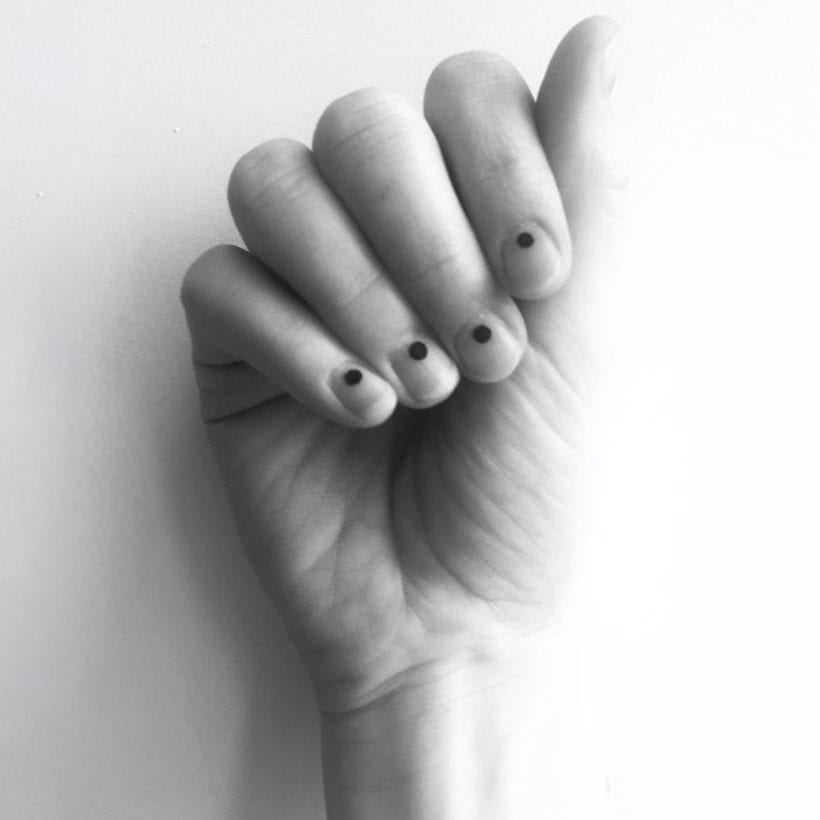Tattoos are meant to last forever, but there are many reasons why someone would want to get one removed. Perhaps you don’t like the way it has faded over time, you regret a tattoo style you got when you were younger, or your taste in tattoo art has simply changed. Whatever the motive, tattoo removal is a safe and effective option via laser therapy.
“The lasers that work the best are a combination of Q-switched [Quality-switched] and picosecond lasers, which have very short pulses that deliver a really high amount of energy in a short amount of time in order to break up the ink,” says Dr. Robert Finney, a board-certified cosmetic dermatologist at Entière Dermatology.
Tattoo removal can be non-invasive and safe — but it’s helpful to mentally prepare what you’re signing up for. So if you’re ready to make a change and want to get your tattoo removed or lightened, our expert walks us through what to consider before committing.
Start with your dermatologist.
Though some aestheticians or tattoo removal specialists have the proper technique and tools to get rid of your tattoo, your existing dermatologist will be able to perform the removal — and will also take extra care of not burning or scarring any of your skin. “A lot of medispas have popped up and offer tattoo removals, but it’s always better to go to somebody well-trained in the technology,” says Finney. If you have a deeper skin tone, you especially want to make sure you go to a professional who understands the different laser settings “because of the risk of hypertrophic scarring in an area or lightening or darkening the skin,” says Finney.

It will take multiple sessions.
Getting a tattoo is a lot easier than getting it removed. “It’s always going to be multiple sessions for any tattoo and most professionals will quote you anywhere from six to 12 sessions,” says Finney. Depending on your tattoo, this can translate to months to a year, so that your skin can heal in between sessions. If you got a tattoo done by an amateur artist and you’re seeking removal, you might be in luck: “Typically the ink is placed more superficially in this case, so it might be easier to remove,” he says. And, if it’s an older or simple tattoo, you won’t need as many sessions.
Your tattoos won’t fully disappear.
To level-set expectations, “they can look like they’re gone, but you never actually fully get rid of the pigment. The tattoo pigment is absorbing the heat from the laser and can degrade a little bit. It fractures the pigment into smaller pieces, some of which will still probably stay there, some of which can get chewed up by our inflammatory cells. The hope is to get rid of every tiny little ounce of pigment, but it’s not always possible,” says Finney.

Colored tattoos are more difficult to remove.
“Colored tattoos don’t absorb the wavelengths as well as black ink tattoos so they’re going to be more difficult to remove. There will be different wavelengths needed, so you really would have to go to someplace that has more than one wavelength in their laser to remove a colored tattoo,” says Finney. If you have a colored tattoo, expect that it will likely take more sessions than a traditional black ink tattoo.
The tech is getting even better.
Laser technology is getting more accelerated when it comes to tattoo removal — even for colored ink. “There’s a laser surgeon, Roy Geronemus at Laser & Skin Surgery Center of New York and he pioneered this R20 treatment protocol where he has this special gel that you apply over the top of the tattoo that allows you to do multiple treatments in one sitting. There are things that have come out that have allowed us to push the envelope, but still, any tattoo is going to take multiple sessions,” says Finney. There’s also the new PicoSure laser (a type of picosecond laser) that also requires fewer sessions and is known to successfully remove colored ink better than other lasers.
It can be costly.
The cost of tattoo removal will depend on its size, color, and how long ago you got the tattoo. Recent statistics show that the average cost of laser removal is $423 per session. Tattoo removal isn’t typically covered by insurance, so it’s important to work out with your doctor how many sessions your unique situation will take and to plan ahead for the investment.
It might hurt less than expected.
For some patients, laser tattoo removal won’t hurt as much as getting the tattoo did, but for other patients, it might hurt more. It depends on your pain threshold and experts will recommend a numbing cream to ease discomfort. “Sometimes larger tattoos can’t be effectively numbed,” says Finney. “If it’s a reasonably sized tattoo, typically we’ll inject numbing medicine so you shouldn’t feel anything,” he says. You should also prepare for redness and blistering for a week to 10 days after each session. However, as your sessions progress, the discomfort should decrease since there’s less ink to a laser.

The healing process depends on the location of the tattoo.
“Healing time and risk of side effects for laser treatments are site-specific. Areas like the face have a great blood supply and significantly higher ability to heal themselves compared to the neck or chest. The further we go down the body, especially below the knee, the longer the healing time will be, and the higher the risk we can run into side effects such as dyspigmentation or scarring. So when lasering a tattoo of the leg, we would have to be more conservative and it would take more sessions to get the same clearance as a tattoo that we were treating on the face in fewer sessions,” says Finney.
Have your post-laser care package ready.
You’ll want Band-Aids and Aquaphor for starters to cover the area, but also consider buying clothes that won’t irritate the skin that’s trying to heal. For instance, if you have a shoulder tattoo, wear strapless tops or loose-fitting shirts. And when it comes to your skincare routine, “make sure to avoid any active ingredients until your skin has healed,” says Finney. Also, it’s important to avoid sun exposure before and especially after your treatment as ultraviolet rays can lead to hyperpigmentation or burning.
We only recommend products we have independently researched, tested, and loved. If you purchase a product found through our links, Sunday Edit may earn an affiliate commission.







